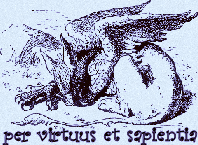It was as amazing as I'd hoped it would be...and far more tense than I ever expected. I mean really, really tense. If I happened to say "Derry" instead of "Londonderry," the British Loyalists would say, "So...they've gotten to you, have they? They've taught you to call it that?" If said "Londonderry," the Irish Nationalists would take me aside and tell me to rip the "London" right out of it. And that was the least of the hostilities. I dare not write what else I heard. Wherever I went, it always felt like half of the population was looking away from the other half. A powder keg about to blow.
Indeed, a bomb did go off just a week or two after I left, but since I was still travelling I didn't hear about it until much later.
I originally planned to write a post about all the various murals I saw throughout the country, ones honoring fallen heroes on both sides, ones that inspired, ones that terrified. But then I realized I couldn't write a single letter without bias, because what information I learned on my short fling through the country is hardly worthwhile repeating. I left with nothing but impressions. Impressions of men who frightened me, no matter their politics, with stories about their roles in violence and murder. Impressions of the dead castles, the green hillsides, the waves crashing steadily against the mathematical rocks of the Giant's Causeway, that pay no heed to whose feet stand or whose blood flows. I came and went as a tourist in the purest sense of the word, unable to contribute anything useful to the argument. Unable to articulate anything, really, except a great sense of loss and frustration, even though I have nothing personally at stake.
I can't write this post, you see, because I can't possibly tell an accurate version of what is happening, what has happened, in Northern Ireland. It's too complex, and I'm bound to get something terribly wrong, or oversimplify, or just plain insult. It's over my head.
What I can give you, however, before I slip down any further into my own deep morass of rumination, is
THE RED HAND OF ULSTER
Zing! Here it is. You can, I don't know, stare at it for a while.

This was a mural in the Shankill area of Belfast. In comparison to some of the others in the area, you might consider this particular mural "lighthearted." A sign on the side reads, "There are many legends telling the origins of the Red Hand of Ulster. This mural depicts only one of these."
I think this mural depicts the "race" version of the legend. According to Dictionary of Phrase and Fable, 1898:
"In an ancient expedition to Ireland, it was given out that whoever first touched the shore should possess the territory which he touched; O’Neill, seeing another boat likely to outstrip his own, cut off his left hand and threw it on the coast. From this O’Neill the princes of Ulster were descended, and the motto of the O’Neills is to this day 'Lamh dearg Eirin' (red hand of Erin)."
I love how in the mural O'Neill is saying, "Yay I won!" while waving around his one remaining hand.

Also he doesn't seem to be wearing any pants. Couldn't he have, I don't know, just cut off a finger? You've got to hand it to him - he was determined. I guess he handled it the best he could. It's a good thing there wasn't a seagull nearby, or he might have been caught by it red-handed. Hand to mouth, you might say. It's okay that the other guy lost, though. He wouldn't have wanted the land anyway. It was a hand-me-down.
Okay, I'm done.
The Red Hand has been used as a symbol by both Loyalists and Nationalists. So there. I'm safely apolitical. This post has been entirely evenhanded.
Er...




